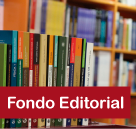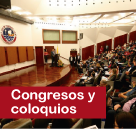Recent Submissions
Item type:Item, Access status: Open Access , Estudio sobre la metáfora(Casa de la Cultura del Perú, 1905) Iberico, MarianoEnsayo dedicado al estudio de la metáfora poética desde una perspectiva filosófica y estética. El autor analiza la estructura de la metáfora como forma de creación literaria y como instancia fundamental en el proceso de configuración simbólica. A partir de la relación entre imagen, lenguaje y realidad, el texto explora las conexiones entre metáfora, símbolo y actividad espiritual, proyectando reflexiones hacia los ámbitos de la psicología, la poesía y la metafísica. La obra propone que la metáfora no es solo un recurso estilístico, sino una forma esencial de conocimiento y expresión de la experiencia humana.Item type:Item, Access status: Open Access , Jorge Manrique, poeta de la añoranza(Imprenta Santa María, 1932) Iberico, MarianoEnsayo crítico-literario en el que Mariano Iberico analiza la poesía de Jorge Manrique desde una perspectiva psicológica y estética, destacando el sentimiento de la añoranza como eje fundamental de su obra. A partir del estudio de las Coplas por la muerte de su padre, el autor examina los temas de la fugacidad del tiempo, la muerte, la memoria y la ausencia, proponiendo que la unidad profunda de la poesía manriqueña radica en la contemplación del pasado como experiencia espiritual. El texto corresponde a una conferencia dictada en el Instituto Peruano de Cultura Hispánica y desarrolla una interpretación filosófica de la poesía como forma de trascendencia frente al devenir y la caducidad.Item type:Item, Access status: Open Access , Monitoreo de la afectación al bienestar socioemocional docente en Lima Metropolitana y Callao(Instituto de Analítica Social e Inteligencia Estratégica - PULSO PUCP, 2026-02) Instituto de Analítica Social e Inteligencia Estratégica - Pulso PUCP; Grupo de Investigación en Psicología Comunitaria PUCP; Dirección de Promoción del Bienestar y Reconocimiento Docente (DIBRED-Minedu)En este sexto Informe de Evidencia sobre Educación y Salud Mental se presenta el monitoreo de los factores que afectan el bienestar socioemocional docente en Lima Metropolitana y Callao. El análisis realizado pone en evidencia que la convergencia entre el escalamiento de la violencia escolar y el crecimiento acelerado de delitos como la extorsión en Lima Metropolitana y Callao ha transformado a muchas instituciones educativas en espacios de riesgo persistente que afecta directamente su bienestar socioemocional y genera un nuevo riesgo directo para el ejercicio docente.Item type:Item, Access status: Open Access , Proyectos y anteproyectos de la reforma del Código civil : Tomo II(Pontificia Universidad Católica del Perú. Fondo Editorial, 1980) Pontificia Universidad Católica del PerúEl presente documento contiene el texto normativo del proyecto de reforma del Código Civil Peruano relativo a la teoría general del acto jurídico. El articulado establece los requisitos esenciales para la validez del acto, tales como la capacidad, el consentimiento, el objeto física y jurídicamente posible, la finalidad lícita y la forma. El proyecto introduce precisiones doctrinarias sobre la manifestación de voluntad (expresa y tácita), el tratamiento de las reservas mentales, la relevancia del silencio y la validez de los actos realizados bajo estados de inconsciencia. Asimismo, se detallan las disposiciones sobre la representación, las modalidades del acto (condición, plazo y cargo), y los vicios de la voluntad (error, dolo, violencia e intimidación), culminando con el régimen de nulidad, anulabilidad y confirmación de los actos jurídicos.Item type:Item, Access status: Open Access , Forecasting value at risk and expected shortfall in equity markets of high-income and Latin American countries(Pontificia Universidad Católica del Perú. Departamento de Economía, 2026-02) Liza, Fiorela; Rodriguez, Gabriel; Ataurima Arellano, MiguelUsing daily equity market data for Latin American (Latam) and high-income (HI) countries over 2008-2023, this paper estimates GARCH and GJR models to forecast Value at Risk (VaR) and Expected Shortfall (ES). The performance of a broad set of heavy-tailed and asymmetric distributions is evaluated, including the Normal (N), Skewed Normal (skN), Student’s t (S), skewed S (skS), generalized hyperbolic skS (GHskS), normal inverse Gaussian (NIG), skewed NIG (skNIG), normal reciprocal inverse Gaussian (NRIG), and skewed NRIG (skNRIG). The key findings can be summarized as follows: (i) for VaR forecasting, asymmetric distributionsare preferred at both confidence levels, and at the 99% level heavy tails are also required; (ii) for ES forecasting, at both confidence levels the selected models rely on asymmetric heavy-tailed distributions, with GHskS emerging as the dominant specification; (iii) for VaR forecasting, modeling leverage effects is necessary for most HI countries, whereas this is required for only about half of the Latam countries; and (iv) for ES forecasting, volatility specification plays a more limited role than in VaR forecasting.
results












